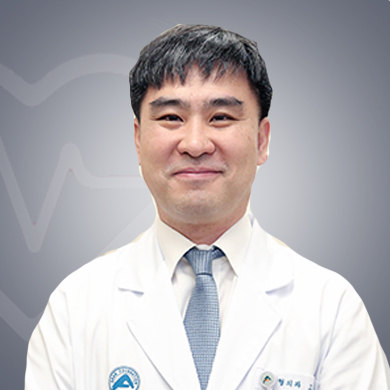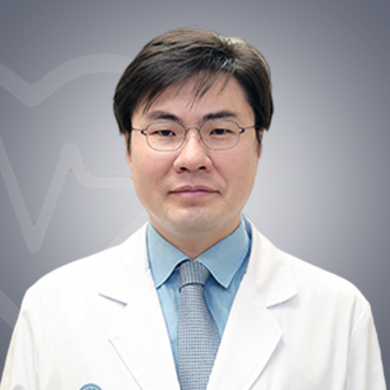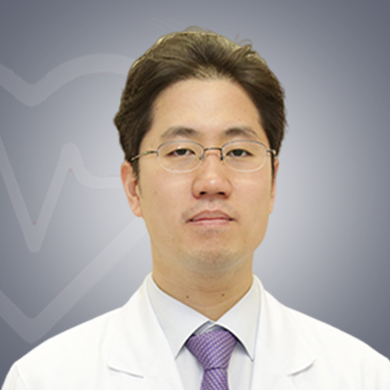
Dr. Kyung Hwan Ko is a specialized Orthopedic Surgeon in South Korea. And one of the most sought after medical specialists in Seoul, South Korea. The doctor has over 19 Years of experience and is associated with Asan Medical Centre.
Qualifications :
Hospital Address :
Asan Medical Center, Olympic-ro 43-gil, Pungnap 2(i)-dong, Songpa-gu, Seoul, South Korea

Dr. Ji Wan Kim is a specialized Orthopedic Surgeon in South Korea. And one of the most sought after medical specialists in Seoul, South Korea. The doctor has over 19 Years of experience and is associated with Asan Medical Centre.
Qualifications :
Hospital Address :
Asan Medical Center, Olympic-ro 43-gil, Pungnap 2(i)-dong, Songpa-gu, Seoul, South Korea
What is the medical expertise of Dr Ji Wan Kim?

Dr. Seung Cheol Kang is a specialized Orthopedic Surgeon in South Korea. And one of the most sought after medical specialists in Seoul, South Korea. The doctor has over 15 Years of experience and is associated with Asan Medical Centre.
Qualifications :
Hospital Address :
Asan Medical Center, Olympic-ro 43-gil, Pungnap 2(i)-dong, Songpa-gu, Seoul, South Korea
What is the medical expertise of Dr Seung Cheol Kang?
Using MediGence’s Telemedicine Platform, you can book a personalized video consultation with renowned doctors around the world

Please make sure to see your doctor using Telemedicine before you even board a flight
Following are some of the best clinics in Seoul, South Korea with whom Orthopedics Specialists are associated with:
Orthopedics is a medical field that focuses on conditions and diseases that affect the musculoskeletal system. This includes your ligaments, bones, joints, tendons, muscles, and nerves.
People visit an orthopedic doctor when they suffer from an injury or have a chronic condition, such as lower back pain or arthritis.
An orthopedic specialist is also referred to as an orthopedic surgeon, who focuses on helping you in getting relief from musculoskeletal issues. Their duties generally include:
Different orthopedic specialists specialize even further in specific parts of the body, such as the hip, ankle, foot, or shoulder. A few of them also specialize in treating children. Pediatric orthopedists monitor bone growth issues in children, such as like scoliosis or developmental problems that a child is born with, such as clubfoot or hip dysplasia.
Aspiring orthopedic specialists need to obtain a 5½ years MBBS degree and then 2- 3 years MS (orthopedics). Interested candidates have to follow the below-given steps to become an orthopedic specialist:
Step 1:
Science students who have appeared in +2 (with Chemistry, physics, and biology as main subjects) need to appear in a medical entrance test.
Step 2:
After completing the four and half years of MBBS course and one year and six months of mandatory training, one has to pursue MS (Ortho) to work as an Orthopaedic Surgeon.
Step 3:
After completing two to three years of MS (Ortho) course, an Orthopaedist can get jobs in government hospitals and can also open their own clinic to provide services to patients.
Orthopedic doctors treat a wide variety of conditions, including but not limited to the following:
Your orthopedic specialist may recommend some tests to get a better picture of your problem. Most of the diagnostic imaging procedures are noninvasive and also give high-resolution images of bones, tendons, joints, or muscles.
Some diagnostic tests to detect orthopedic conditions are as follows:
The human body has more than 300 bones and joints. If just one of them is not functioning properly, you could experience pain and discomfort which may affect your day-to-day activities. You may want to know when to visit an orthopedic specialist. An orthopedic doctor specializes in the treatment of conditions related to the bones and joints and can help in the diagnosis and treatment of your ailments. Knowing when to see an orthopedic doctor may not be always easy, but the below-given symptoms and signs are a sure indication to see an orthopedic specialist.
An orthopedic specialist will ask you about your general health, previous health conditions, complete family medical history, and other current conditions that you may be suffering from. They will especially want to know about conditions such as anemia, diabetes, arthritis, osteoporosis, obesity, and hypertension, because these conditions may affect the treatment options that the surgeon provides.
You need to discuss all pain that you are currently experiencing with your orthopedic doctor. You will also likely discuss it in detail with your doctor.
Also, make sure you discuss any past injuries or existing conditions that could be having a negative effect on the existing orthopedic condition. Before your consultation with the doctor, it might be helpful to maintain a pain journal where you could record activities and positions that are causing pain anywhere in the body. Don’t forget to bring the journal along with you for your consultation and share it with the doctor.
An orthopedic medical procedure is part of a medical procedure used for the treatment of conditions of the musculoskeletal system. Orthopedic specialists utilize both nonsurgical and surgical methods to treat musculoskeletal injuries, sports injuries, spine ailments, tumors, degenerative diseases, and inborn disorders.
Here is the list of common orthopedic surgeries.
Top Medical Specialities in Seoul, South Korea are: